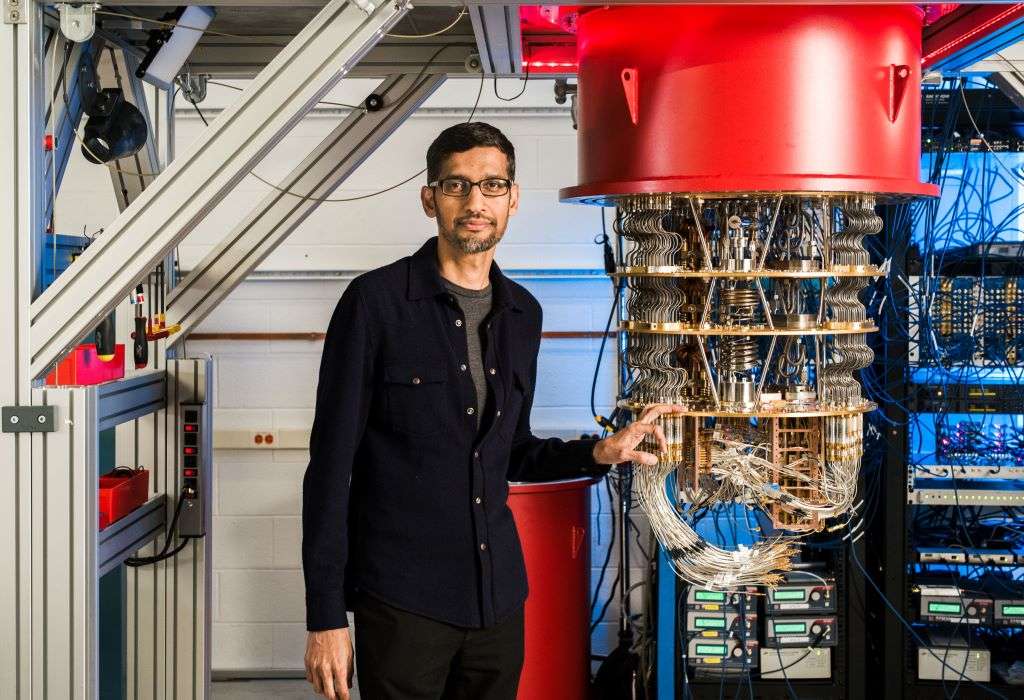Quantum Computing: Unleashing A New Paradigm of Technological Transformation
Quantum computing, a technology that leverages the peculiar laws of quantum mechanics, is emerging as a potential disruptor that could revolutionize various industries.
By performing computations more efficiently than traditional computers, quantum computers have the potential to unlock new possibilities, from drug discovery to climate modeling.
This article delves into how quantum computing could reshape the world and revolutionize the way we solve complex problems.
Table of Contents
Understanding Quantum Computing
Unlike classical computers, which store information in binary bits (0s and 1s), quantum computers use quantum bits, or ‘qubits’.
Qubits can represent both 0 and 1 simultaneously, thanks to a property called superposition.
Furthermore, qubits can be entangled, another quantum mechanic property, allowing the state of one qubit to depend on the state of another, no matter the distance between them.
This interconnectivity and superposition give quantum computers their unprecedented computational power.
Impact on Cryptography
Quantum computing poses a significant threat to current encryption techniques.
Most online security systems today rely on the difficulty of factoring large numbers into primes, a task beyond the capabilities of classical computers but potentially within reach for quantum computers.
Thus, quantum computing could potentially break these security systems.
On the other hand, it could also lead to the development of new, quantum-resistant encryption methods, triggering a complete overhaul of online security mechanisms.
Revolutionizing Drug Discovery
Quantum computers can analyze and simulate molecular structures with an accuracy beyond the reach of even the most powerful classical supercomputers.
This could revolutionize drug discovery, allowing scientists to identify new pharmaceuticals more quickly and efficiently.
With quantum computing, we could see significant advancements in medicine and healthcare.
Advancements in Artificial Intelligence
Machine learning, a branch of artificial intelligence, involves creating models or algorithms that learn from vast amounts of data.
The computational power of quantum computers could dramatically accelerate this learning process, leading to significant advancements in AI capabilities.
Quantum machine learning could enable the development of highly accurate models and help in solving complex optimization problems.
Climate Modeling and Environmental Solutions
Quantum computing could also significantly improve our capacity to model and understand the Earth’s climate.
Accurate climate modeling requires the analysis of vast amounts of data and variables, a task well-suited to quantum computers.
This could enable us to better predict, understand, and mitigate the impacts of climate change.
Limitations and Challenges
Despite the potential, quantum computing is still in its infancy, and several significant challenges need to be addressed.
Quantum systems are incredibly sensitive to environmental interference, leading to errors in calculations.
Moreover, developing quantum algorithms that can outperform classical ones is a complex task.
However, researchers worldwide are working on overcoming these hurdles, making quantum supremacy—a point where quantum computers outperform classical ones—a reachable goal.
Conclusion
Quantum computing is poised to revolutionize our world, tackling problems that are currently impossible for classical computers.
While it is still a developing field with significant challenges to overcome, the potential impact of quantum computing could be transformative, reshaping sectors from cybersecurity to healthcare, AI, and climate science.
The quantum revolution is coming, and it could change the world as we know it.
FAQs
Q1: What is Quantum Computing?
Quantum computing is a type of computing that leverages the principles of quantum mechanics to perform complex computations. Unlike classical computers, which use bits, quantum computers use quantum bits or qubits.
Q2: How do qubits differ from classical bits?
Classical bits exist in one of two states, 0 or 1, while qubits can exist in multiple states simultaneously, thanks to a phenomenon called superposition. This property allows quantum computers to perform parallel computations.
Q3: What is entanglement in quantum computing?
Entanglement is a quantum phenomenon where qubits become correlated in such a way that the state of one qubit is dependent on the state of another, even if they are physically separated. It enables faster information exchange in quantum systems.
Q4: What are the potential advantages of quantum computing?
Quantum computing has the potential to solve certain complex problems exponentially faster than classical computers. This includes tasks in cryptography, optimization, material science, and drug discovery.
Q5: Is quantum computing ready for practical applications?
While quantum computers are still in the early stages of development, researchers are making significant strides. Some practical applications, such as quantum cryptography and optimization, are emerging, but widespread use is still in the future.
Q6: How does quantum computing impact cryptography?
Quantum computing poses a threat to classical cryptographic systems, particularly those based on factoring large numbers. Quantum-resistant cryptographic algorithms are being developed to secure data against quantum attacks.
Q7: Can anyone use quantum computers?
Access to quantum computers is currently limited, and the technology is mainly in the hands of research institutions and companies working on quantum development. However, cloud-based quantum computing services are becoming available for experimentation.
Q8: What challenges does quantum computing face?
Quantum computing faces challenges such as maintaining qubit coherence (quantum state stability), minimizing errors, and building scalable quantum systems. Overcoming these challenges is crucial for practical, large-scale quantum computing.
Q9: How does quantum computing relate to artificial intelligence?
Quantum computing has the potential to enhance certain aspects of artificial intelligence, such as speeding up machine learning algorithms and solving optimization problems that classical computers struggle with.
Q10: Are classical computers becoming obsolete with the advent of quantum computing?
Classical computers will continue to play a crucial role in many tasks. Quantum computers are not meant to replace classical computers but rather to complement them, addressing specific problems more efficiently. The two technologies are expected to coexist.



Comments